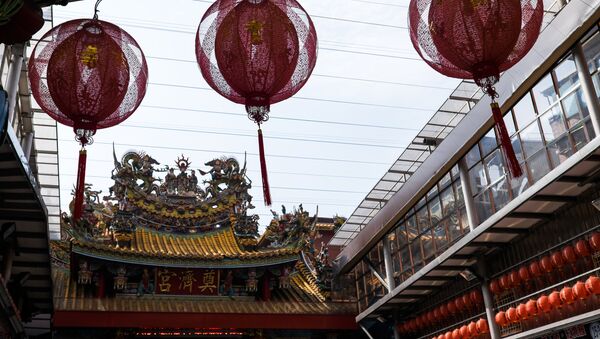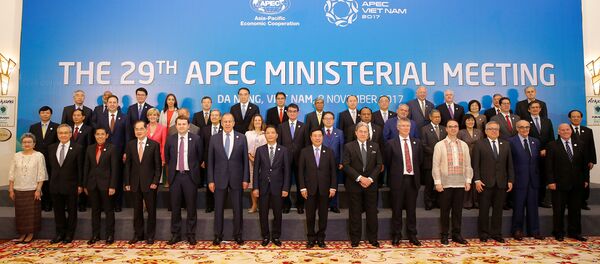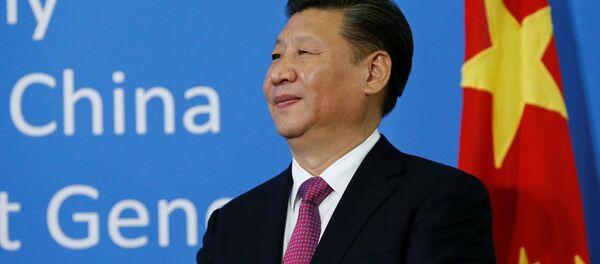Chinese scholars specializing in Taiwan research say that what is happening in Spain is just a demonstration of where the pursuit of Taiwan's independence will lead, and that the reality Taiwan faces is harsher than that surrounding Catalonia.
In a dramatic development to a long-standing secessionist inclination, the Catalonian parliament on October 27 announced independence from Spain after a referendum on October 1, which Madrid declared illegal. About 90 percent of Catalan voters backed independence, though the turnout was only 43 percent.
Spain's Constitutional Court then moved to impose direct control over the region and sacked regional president Carles Puigdemont, who then fled to Belgium.
Taiwan's pro-independence political forces have been following the Catalan situation closely, making sympathizing remarks and comments, as Catalonia's situation mirrors their own. Taiwan's pro-independence New Power Party, the third largest, holding five of the 113 seats of Taiwan's legislature, posted on Facebook one day after the Catalan referendum in support of Catalonia breaking away from Spain.
The party also condemned the Spanish government for "obstructing the referendum with brutal, violent force," and extended their "greatest honor" to the Catalan people "bravely and resolutely expressing themselves."
Pro-independence Taiwan media, including the Liberty Times, also covered Catalonia's events closely.
"But they soon found out that things are not what they hoped for," said Zhu Songling, a professor with the Beijing Union University Taiwan Research Center.
As the situation in Spain fell into precipitous decline, secessionist Taiwanese politicians went from cheerful to despondent. The central government of Spain moved steadily to thwart any attempts at independence by managing protests in Catalonia with an iron hand and pressing charges against rebellious politicians.
More suffocating for Catalan politicians, major Western countries unanimously voiced their support for Madrid. The US State Department said "Catalonia is an integral part of Spain" and that the US supports the Spanish government's efforts to seize control of Catalonia. European countries including Britain and Germany also hold the same attitude.
The Chinese foreign ministry has expressed its support to the Spanish government in dealing with Catalonia's independence movement, saying it is a domestic issue. This is in line with China's diplomatic policy of non-interference.
Ever since the Kuomintang Nationalist Party of China was defeated in the civil war and fled to the island in 1949 the Chinese government has maintained that Taiwan is an integral part of China.
Beijing views Taiwan as a territory waiting to be reunited and created the policy of "One country, two systems" to facilitate that goal.
Professor Zhu in Beijing said Taiwan should learn from the Catalonia incident that Taiwan's independence is unachievable and that any attempt at independence through a referendum is just another dead-end for Taiwan. "They should wake up," he said.
Ominous forecast
Pro-independence forces in Taiwan have long tried many attempts to pursue independence on legal grounds, including calls for a referendum. It is a means viewed by them to gain legitimacy and win recognition from the international community.
The constitution of Taiwan, which represents the "Republic of China," stipulates that the "country" is comprised of the Chinese mainland and Taiwan. This is something Taiwan-independence politicians have tried their best to avoid mentioning.
Those forces have been actively pushing for Taiwan's status as an "independent country," not including the mainland. The Democratic Progressive Party (DPP) in 2007 approved a "normal country resolution," in which it calls to "formulate a new constitution and make Taiwan a sovereign country through a referendum at the proper time."
In 2016, when the DPP took office, it began to push for an amendment to the "referendum law," trying to substantially lower the bar for a referendum. Taiwan's referendum law requires at least a 50 percent turnout of voters in order for the referendum to be valid.
The DPP pushed to allow 18-year-old citizens to vote for the referendum, compared with the original requirement of 20 years or older. It also hoped to change the minimum number of people that can call for a referendum from 90,000 to a mere 2,000.
Li Chuanxin, head of Taiwan North, a radical secessionist political organization, wrote in the Liberty Times requesting the subjects of referendum to include those that "transcend the constitution," and calling for hunger strikes to force the DPP to finalize the amendment.
Professor Zhu said Taiwan independence will only lead to war.
President Xi Jinping has, on different occasions, vowed to rout any possible attempt to separate Chinese territory, backed by the Anti-Secession Law. But pro-independence forces refuse to give up easily.
Double standards
Liang Wen-chieh, a pro-independence Taipei lawmaker and DPP member, wrote that his initial sympathy for Catalonia has turned into disappointment after Catalan leader Puigdemont fled the country.
He said that, given the situation, the current administration's policy of "maintaining the status quo" or "pragmatic Taiwan-independence" is better than Catalonia-like drama, which could lead to bloodshed.
Major Western countries unanimously dismissed Catalonia's self-declared independence, which is certainly not good news for Taiwanese secessionist forces. As secessionism has grown in a number of Western countries, those governments are on high alert to foil such tendencies, experts say.
"No country would allow any splitting of its territory. A country is not always as united as iron, but why does it have to be separated? If split, its state power will inevitably plummet," Yang told the Global Times.
But she also said that Western countries may not think the same way for China, even though all countries having diplomatic relations with China must respect the one-China principle.
The US apparently heightened its level of communication with Taiwan leader Tsai Ing-wen during her "stopover" in Hawaii on the way to visit Pacific countries. But still, the biggest threat from the US is its arms sales to Taiwan, Yang said.
"The West habitually holds double-standards when it comes to China," Zhu said.
Experts say China has grown ever more confident in dealing with Taiwan-independent forces, and the recognition of a one-China principle is also expanding as the country's economic and geopolitical clout increases.
International society mostly respects the one-China principle and does not view Taiwan as an independent country. Indeed, since the DPP took office in 2016, two more countries have severed diplomatic ties with Taiwan in support of the Chinese mainland.
This leaves only 20 countries, mostly small in size and economy, to side with Taiwan. Yang said at least six countries are currently reassessing their ties with Taiwan.
"State power is the decisive factor in international politics. We are capable of stripping Taiwan of countries with diplomatic relations. Without anyone's recognition, what kind of country are you?" Yang said.
This article, written by Li Qian, was originally published in the Global Times.






